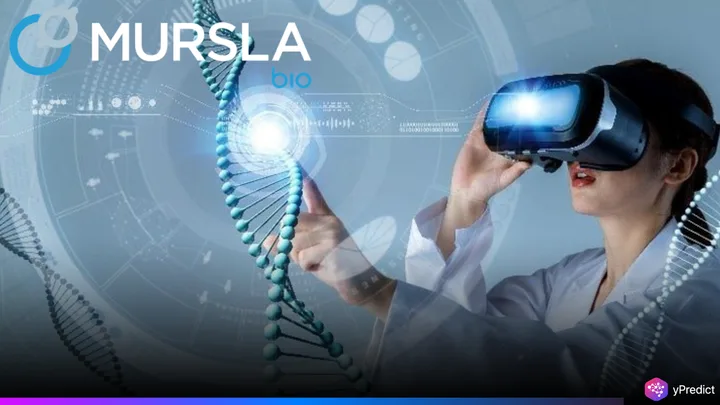
UK-based biotech company Mursla Bio has launched a new AI-powered precision medicine platform that could transform how liver diseases are diagnosed. The platform uses just 2ml of blood to isolate organ-specific biological data, enabling highly accurate, non-invasive disease detection. It was developed in partnership with Evotec International GmbH and University College London.
Mursla’s first proof-of-concept, EvoLiver™, has already shown strong early results in detecting liver cancer. “We’re offering a new window into the biology of organs without the need for biopsies,” said Pierre Arsène, Mursla Bio’s CEO. With clinical validation published in a pre-print and FDA support for its lead test, the company is now opening its platform for wider medical applications.
Inside the Technology, AI Meets Organ-Specific Data
At the core of Mursla Bio’s innovation is a platform that isolates extracellular vesicles (EVs) from plasma. These vesicles, released by organs, carry rich molecular data. The platform pulls out EVs from specific organs, like the liver, using a method that dramatically reduces background noise. It improves biomarker clarity by up to five orders of magnitude.
Unlike standard liquid biopsies, which often struggle with mixed signals, Mursla’s method extracts clean, organ-labeled data. This creates structured datasets that are easier for AI models to interpret. The system combines multi-omics analysis (proteins and RNA) with built-in AI pipelines and diagnostics-ready workflows. It works with common tools like PCR and ELISA, easing adoption in clinics.
“Our technology captures nature’s own messaging system,” said Arsène. “This gives clinicians detailed insights into what’s happening inside a patient, without cutting into them.” That focus on less invasive care is central to the company’s mission.
Clinical Impact and the Road Ahead
The most compelling case for the platform comes from EvoLiver™, Mursla Bio’s liver cancer detection program. Based on data from over 300 patients, the tool reached 86% sensitivity and 88% specificity in early-stage diagnosis. It uses an IVD-compatible test, now backed by the FDA’s Breakthrough Device Designation.
Patient samples were provided by University College London. The validation study, now shared as a pre-print, includes liver-specific markers confirmed through both protein and genetic analysis. Evotec provided key proteomics support, adding scientific weight to the findings. The test requires just a tiny blood sample, only 2ml, making it a scalable tool for high-risk populations.
However, Mursla Bio acknowledges challenges in scaling the platform across other organs. Different disease areas may require custom tuning of the isolation methods and biomarkers. Still, the company is expanding. New programs are in development for lung, neurological, and cardiometabolic diseases. Pharma partnerships are also underway to explore therapeutic monitoring and dynamic patient stratification. The platform’s potential now extends far beyond liver care.
Mursla Bio Signals a New Era for AI-Driven Organ Diagnostics
Mursla Bio’s AI-powered platform represents a leap forward in precision diagnostics. By decoding organ-specific signals from blood, the technology could reshape how diseases are diagnosed, monitored, and treated. Its early success with liver cancer opens the door for broader applications in cardiology, neurology, and beyond.
The company’s focus on clinically deployable, AI-ready assays aligns with the healthcare industry’s push toward early detection and personalized treatment. If future validations hold up, Mursla’s approach could shift how we access molecular insights, replacing invasive tests with smarter blood-based diagnostics. The launch marks just the beginning of a new frontier in organ-level disease detection powered by artificial intelligence.






